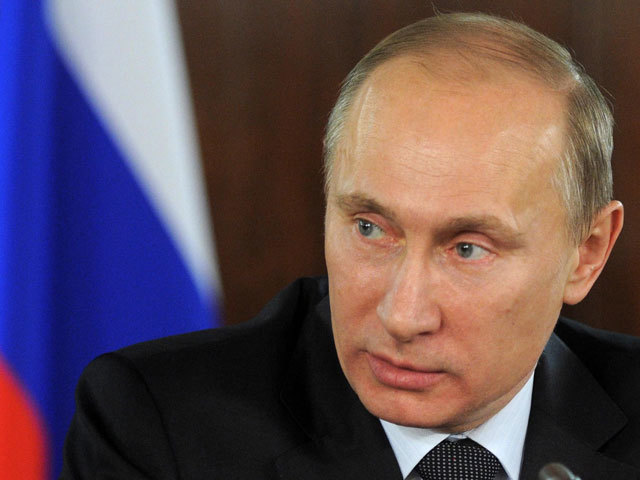
Deputy Prime Minister Nick Clegg said it was time for the EU to move to so-called “Tier 3” sanctions against Russia, which would block access to European markets for whole sectors of the Russian economy – such as gas and oil – alongside the existing “Tier 2” travel bans and asset freezes imposed on individual members of Mr Putin’s inner circle.
Individual EU states should be ready to accept a short-term economic hit in order to promote the longer-term priority of restoring peace and security on the 28-nation bloc’s eastern borders, he said.
While the UK and a number of eastern European states have been pushing hard for tougher action against Moscow, others have been more reluctant – such as Germany, which is reliant on Russian energy supplies, and France, which is in the process of selling two warships to Russia.
Mr Clegg said that the EU had so far failed to “act with the right collective resolve”.
Speaking at a monthly press conference in Whitehall, Mr Clegg said: “We believe the time has now come for sanctions to be tightened further and that is precisely what we will be seeking to deliver in the meetings in the EU later this week.”
He added: “Let’s be clear, in doing so there might be some short-term economic effects in the UK as there would be in other European member states, but a failure to act with the right collective resolve in the EU, in my view, has not served us well in the last seven months.
“We have long argued that the firmer the EU can be at the earliest possible stage, the more likely it is that we will get the desired outcome we wish.”
Mr Clegg said he had detected “a change of mood” on sanctions among “previously much more reticent” EU states since the downing of MH17.
And he added: “At the end of the day, the Russian economy is far, far more dependent on access to the European market than the other way round. It would be in my view a betrayal of the collective clout that we have in the EU – the world’s largest single market with 500 million consumers – it would be a betrayal of the clout that we could wield to good effect if everybody were only to look at their own national economic interests, given what is at stake here.”
Mr Clegg suggested that the International Criminal Court might be the right forum to try those responsible for the atrocity.
After speaking to Mr Cameron earlier today, the DPM said: “Our absolute priority is unhindered, unhampered access to the site so that people’s remains can be treated with respect, that the families can start grieving with dignity and that the investigation into the crash site can be commenced in a very, very thorough and rigorous way.
“It is crucial that the people who committed this atrocity are identified and held to account. All the evidence points to this being the result of a surface-to-air missile being fired in the rebel-held, separatist-held parts of eastern Ukraine. These forces are in turn influenced or even directly controlled by the authorities in Moscow.
“That is why it is for Vladimir Putin to come clean and do the decent thing and grant unhindered access to the crash site, do the decent thing for the grieving friends and families of those who lost their lives, pull back from confrontation on the border, remove the support to the separatist rebels and allow the Russian and Ukrainian peoples to live in peace as neighbours.”